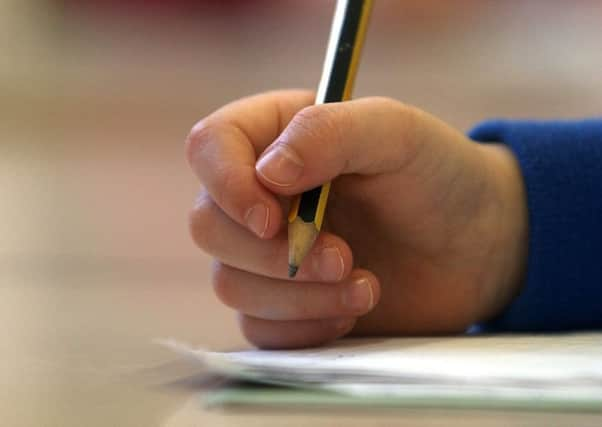Government to fund educational apps so children start school ready to learn


Damian Hinds said screens can be “an easy distraction for children” but added that “not all screen time is created equal”.
The Department for Education (DfE) will buy subscriptions to “high-quality early learning apps” for disadvantaged families with children aged between two and four in 12 pilot areas across the country.
Advertisement
Hide AdAdvertisement
Hide AdIt is hoped that focusing on early learning in the home will enable children to arrive at school ready to learn, a DfE spokeswoman said, adding that, on average, disadvantaged children are four months behind in their overall development at age five.
Mr Hinds said: “Not all screen time is created equal: on one side there are the pressures that come with social media and the time spent looking at a screen, which is a key worry for parents - but on the other, the power of technology and the internet can open up a whole new world when embraced properly.
“But it’s also difficult to navigate, and often expensive, so I want to support parents of all backgrounds to feel able to embrace its benefits and use it in a measured, sensible way that helps improve children’s early development at home.
“Screens can be an easy distraction for children, but harnessing the power of technology to support early communication and development means that we have another tool in our arsenal to help young kids develop those skills.”
Advertisement
Hide AdAdvertisement
Hide AdMr Hinds also confirmed that nearly 6,000 families in the north of England and up to 375 schools and nurseries will take part in four new programmes to provide practical tools and advice on early education:
- Tips by Text will send three texts per week to 2,700 families in the North East with children aged four and five. The eight-month study, run by the Behavioural Insights Team, will encourage parents to develop their child’s literacy, numeracy and socio-emotional skills through simple activities.
- Making-it-REAL will involve 960 families in 120 schools in Greater Manchester and Yorkshire in a National Children’s Bureau programme that trains early-years professionals to visit families at home, getting parents more involved in drawing, singing songs and counting with their children, as well as encouraging them to use everyday activities to boost learning.
- Group Triple P (Positive Parenting Program) will offer 1,800 families across 150 schools and nurseries in the North West expert advice on how to improve their children’s language and social and emotional development through role play, homework exercises and video clips of positive parenting techniques.
Advertisement
Hide AdAdvertisement
Hide Ad- Parent Child Home Programme will see experts visit families in Doncaster, Rotherham, Sheffield and Barnsley twice a week for 15 months, demonstrating different reading, conversation and play activities, and providing books and educational toys. The programme will be run by Family Lives to benefit 320 families with children aged two.
The four projects will be run by the Education Endowment Foundation (EEF) and Leeds-based education charity SHINE as part of work to achieve the Education Secretary’s 10-year ambition to halve the proportion of children leaving reception without the expected communication skills.
Sir Kevan Collins, chief executive of the EEF, said: “By testing different ways of improving the home learning environment - from texts to parents to home visits - these new trials will give us much-needed information about how we can give mums and dads the tools they need to give their child the very best start in life.”
SHINE chief executive Fiona Spellman said: “Research consistently shows that communication and language difficulties in the early years can hold back children for the rest of their time in education.
Advertisement
Hide AdAdvertisement
Hide Ad“These programmes are a great way of seeing how we can make a real difference at an early stage and support all children to achieve their potential.”
An expert panel, headed by Professor Jackie Marsh of the University of Sheffield, was formed in January and will draw up a set of criteria for assessing suitable apps.
It is expected the trial will begin in the next academic year in up to 12 areas across the country which will be selected according to deprivation and levels of child literacy and language skills.
The final cost of the apps trial is not yet known.
